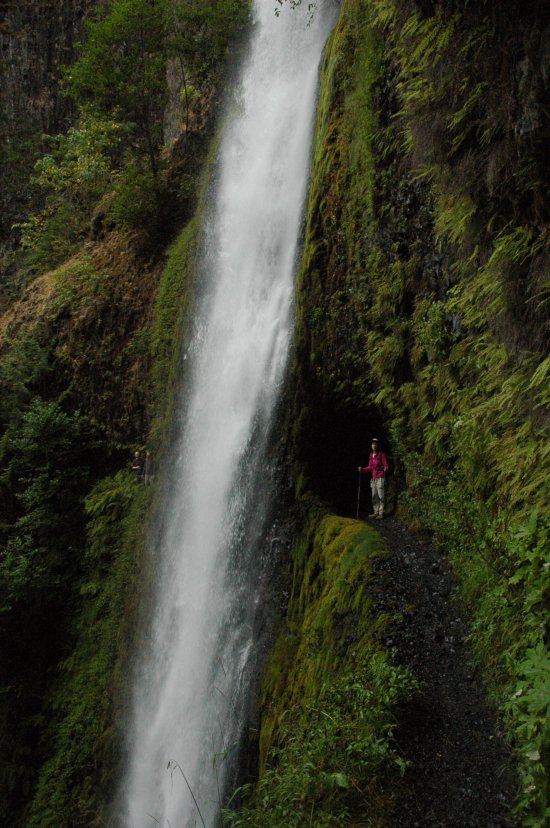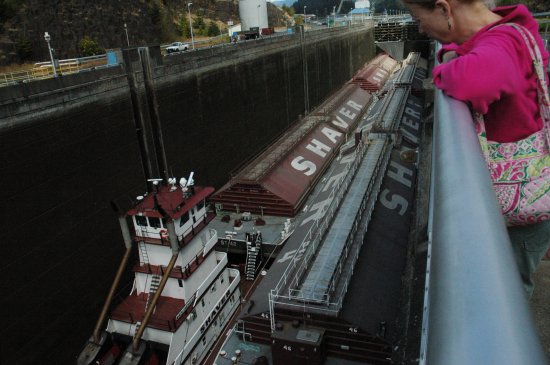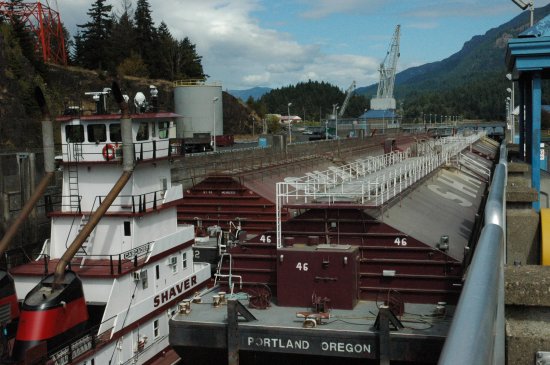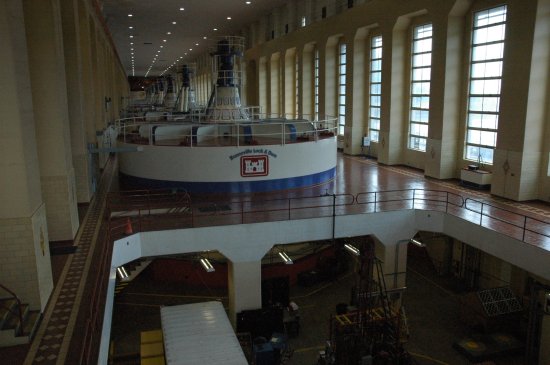Because yesterday’s hike up Eagle Creek to Tunnel Falls (see picture below) was particularly long, 12.5 miles, I took a break from posting when I got home. Today (Monday), however, was a more easy-going day, as we did more ordinary tourist stuff, driving from place to place with only short strolls at each stop.

The most fascinating tourist stop of the day was by far Bonneville Dam. Just as the security guard at the gate let the car in front of us through, her phone rang. When she was finished and came up to our car, she explained that we would have to wait about a half hour before going to the visitor center, as they needed to open the swing bridge so that a barge could go through the locks. At first I thought this was very unfortunate timing. In the end, it turned out to be fortuitous indeed. We parked at the viewing area above the locks and watched five barges, tied tightly together as a unit and pushed upstream by a tug, slide gently into the lock with barely inches on either side. Neither Diane or I could believe how little spare room the tugboat captain had to pilot this massive object. The gigantic downstream doors then closed (while I quipped that music from Star Wars should be playing) and the lock was quickly filled with water, raising the barges/tugboat up almost a hundred feet. The upstream doors than opened and the barge headed out. All told, the whole operation took less than 45 minutes.


We then took a tour of the dam’s first power station, with its ten turbines all in a row. Unfortunately, none were operating at the moment. Nonetheless, whenever I see places like this (such as when I visited Hoover Dam back in 2005), I can’t help but be reminded of the scene from the science fiction movie Forbidden Planet, when Walter Pigeon gives us a tour of the Krell underground machine. Unlike the Krell, however, it didn’t take millions of years for us to learn how to build such breath-taking big dams and power stations. We did it less than 150 years after the discovery of electricity!





